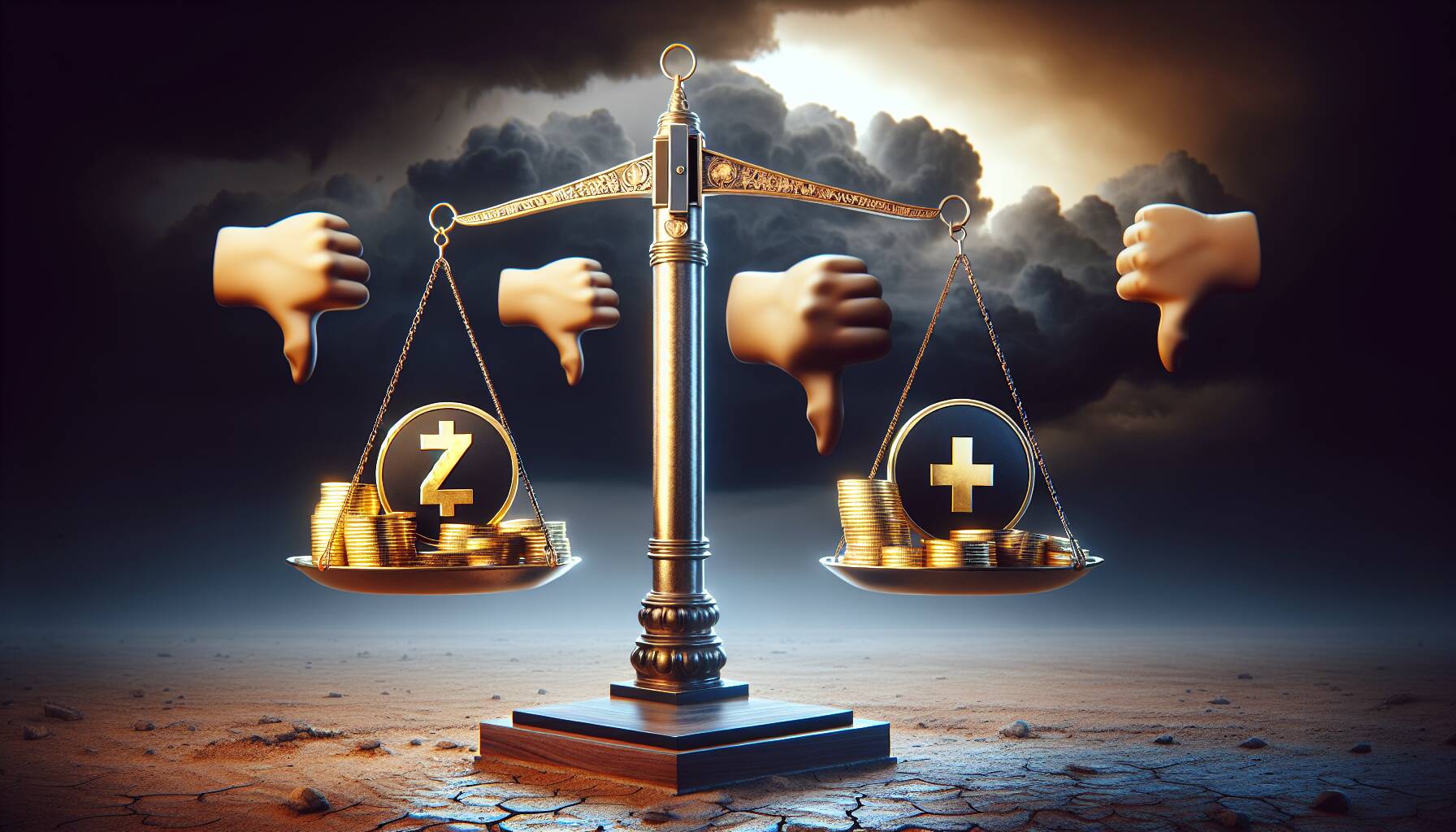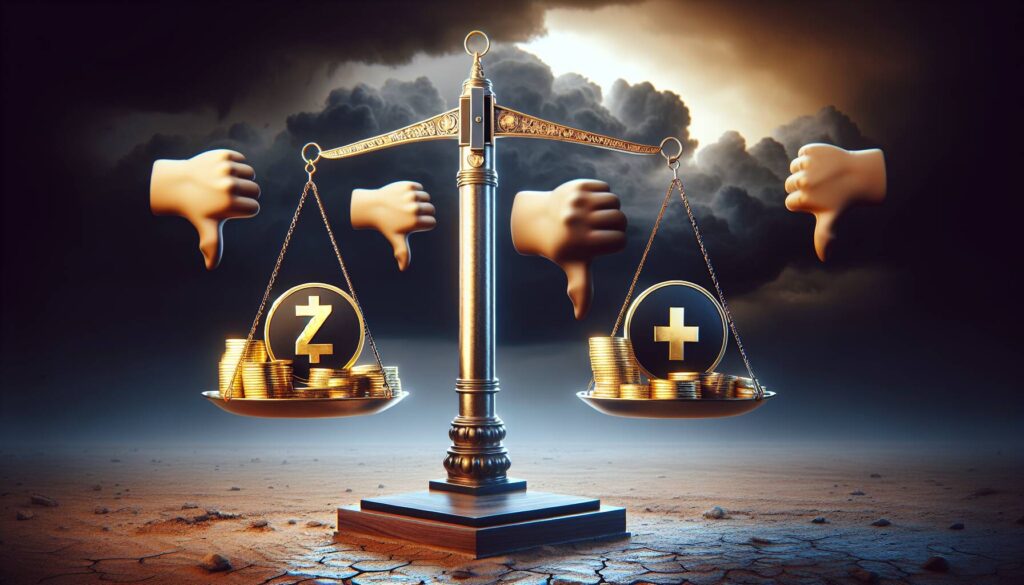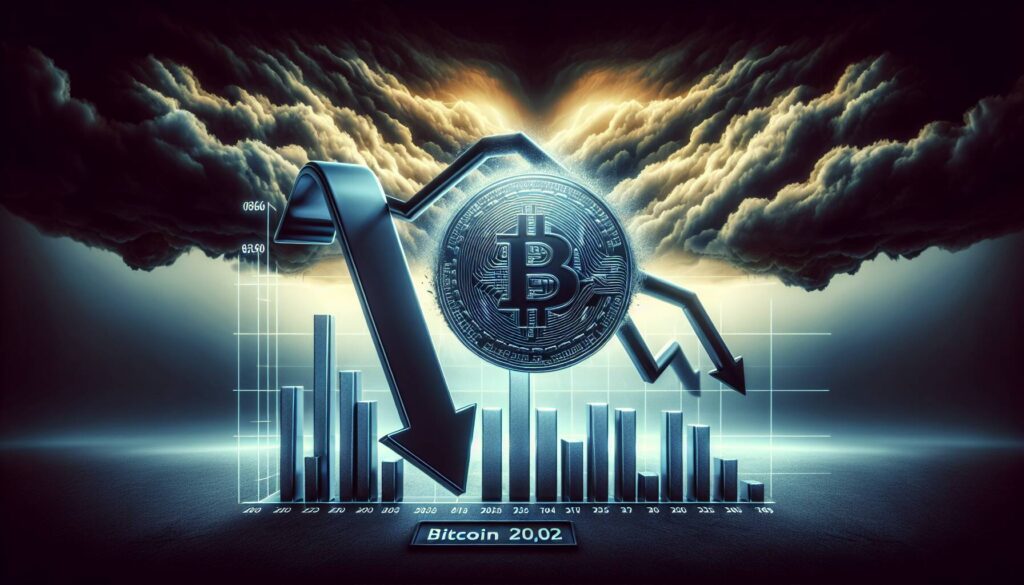This week, the cryptocurrency world has been buzzing with criticism directed at Binance, one of the largest cryptocurrency exchanges globally. The topic of concern? The inclusion of the privacy-focused token Zcash (ZEC) on a ballot for potential delisting from the platform. With a market capitalization of around $500 million, Zcash has been at the forefront of discussions surrounding user privacy in the digital currency space.
“You’re considering delisting Zcash!? What kind of world are you creating?”
This poignant question was posed by Zcash founder Zooko Wilcox in a tweet directed at Binance CEO Richard Teng. Wilcox called into question the implications of moving away from privacy-preserving technologies, urging decision-makers to consider the future they are shaping for the next generation. Wilcox’s sentiments resonated with many in the digital currency community, including Barry Silbert, founder of Digital Currency Group, who echoed concerns over the potential impact on privacy-focused coins.
Notable figures such as Ledger CTO Charles Guillemet and Cosmos co-founder Ethan Buchman have also spoken out, emphasizing the crucial role that privacy plays in the broader financial ecosystem. Privacy tokens, however, have faced increasing scrutiny from financial regulators worldwide. Notably, a leaked document from the European Union in 2022 raised the possibility of a regional ban on such tokens, reflecting a growing trend among governments concerned about their potential usage in illicit activities.
Further complicating the landscape, the U.S. recently sanctioned the privacy protocol Tornado Cash due to similar concerns, though those sanctions were lifted just last month. As for Zcash, it currently trades at $31.26, witnessing a slight decline of 3.1% over the past 24 hours.
The ongoing discussion surrounding the fate of ZEC on Binance illustrates the fine balance between innovation in cryptocurrency and the regulatory landscape that governs it, raising essential questions about privacy, security, and the future of digital currency.

Criticism of Binance’s Delisting Considerations for Zcash (ZEC)
This week, Binance’s decision to include Zcash (ZEC) in a vote for potential delisting has sparked significant backlash from the cryptocurrency community. Here are the key points surrounding the issue:
- Zcash’s Market Position:
- Zcash (ZEC) has a market capitalization of approximately $500 million.
- It is included in a delisting vote alongside FTX’s FTT token and data security platform JASMY.
- Community Response:
- Zcash founder Zooko Wilcox voiced his concerns on Twitter, questioning the implications of delisting privacy tokens.
- Barry Silbert, founder of Digital Currency Group, and other prominent figures echoed concerns regarding the importance of privacy in cryptocurrency.
- Regulatory Context:
- Privacy tokens, including Zcash, have faced scrutiny from financial regulators, with discussions about potential bans in the EU as early as 2022.
- The U.S. sanctioned privacy protocol Tornado Cash over criminality concerns, though the sanctions were lifted last month.
- Impact on Users and the Future of Privacy Tokens:
- If Zcash were to be delisted, it could impact the token’s value and accessibility for users who prioritize privacy in their transactions.
- Continued scrutiny of privacy tokens may lead to stricter regulations, further impacting how users engage with cryptocurrencies.
“What kind of world are you creating? Do you want your children to grow up in peace and prosperity, or a Black Mirror episode?” – Zooko Wilcox
Binance’s Controversial Move: The Zcash Delisting Debate
In the ever-evolving world of cryptocurrency exchanges, Binance has found itself at the center of a heated discussion after announcing Zcash (ZEC) as part of an upcoming vote for potential delisting. This situation isn’t simply a matter of trading assets; it stirs vital conversations around privacy, compliance, and the future direction of the cryptocurrency market. Unlike other exchanges, Binance holds a substantial market share that gives it the power to influence the overall landscape.
One of the most significant competitive advantages of Binance lies in its vast user base and diverse range of listed tokens, granting it considerable influence in crypto regulation debates. However, this recent controversy exposes a vulnerability—by targeting privacy tokens like Zcash, Binance faces backlash from champions of decentralization and financial privacy. Innovators in the crypto space, such as Zcash founder Zooko Wilcox and Digital Currency Group’s Barry Silbert, emphasize that such moves threaten to strip away fundamental freedoms in the digital age.
On the downside, the concerns raised about privacy tokens resonate with regulatory bodies. Binance’s decision could be perceived as a preemptive compliance strategy in the face of increasing oversight—from potential bans on privacy tokens in the EU to sanctions previously placed on Tornado Cash by the U.S. government. Such alignment with regulatory narratives may deter some users who advocate for anonymous financial transactions and could prompt a shift in loyalty towards exchanges that prioritize privacy rights.
This development could potentially alienate a segment of the cryptocurrency community that values privacy and seeks to protect their financial data from prying eyes. As the discourse around cryptocurrency evolves, it becomes crucial for exchanges and users alike to navigate these challenging waters. Ultimately, traders who favor transparency and regulatory compliance might find this situation as an opportunity for safer trading practices. However, those who cherish the notion of privacy could find themselves caught in a quagmire, leading to a reevaluation of their chosen platforms.

















